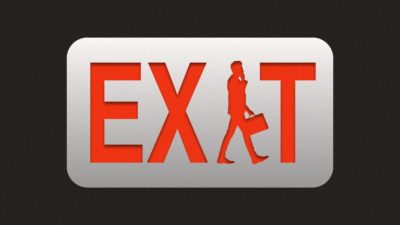Why This Little-Known Wall Street Revenue Stream Is Drying Up
The jig may be up for cash sweeps, which have long been one of Wall Street’s most lucrative — and hush-hush — revenue streams.
Sign up for market insights, wealth management practice essentials and industry updates.
The jig may be up for one of Wall Street’s most lucrative — and hush-hush — revenue streams that could have cost clients hundreds of millions of dollars.
For decades, the largest broker-dealers have shuffled clients’ uninvested assets into higher-yielding accounts, earning profits estimated at 10 times what they paid to customers in the process. The practice, called a cash sweep, is often disclosed to investors in the fine print, but it’s gaining renewed attention after elevated interest rates, high-profile lawsuits, and multiple SEC investigations have motivated clients to find more profitable places to park their cash.
It’s good news for investors who are now making the most out of their money, but not so much for a handful of top brokerage firms, like Morgan Stanley, Wells Fargo, and Charles Schwab. While some of the companies reported solid overall earnings last week, they were tamped down by steep losses inside wealth management divisions.
“Investors can’t necessarily demand returns they see advertised because a good portion of that money is used for fees or intended for asset purchases,” said Doug Fritz, CEO of the consulting group F2 Strategy. “At the same time, fiduciary advisors should be looking to earn them closer to market rate returns.”
Wall Street Sweepstakes
Wells Fargo said in its second-quarter earnings call that it would pay customers more in its cash sweep program, and it would likely result in a $350 million hit to interest income in its wealth arm this year alone. CFO Mike Santomassimo said in a call with analysts that the change was not anticipated. Last fall, the wirehouse disclosed an SEC investigation into its advisory cash sweep accounts, although the company did not say if the regulatory scrutiny led to the decision.
Morgan Stanley, which is facing a class-action suit of its own, was next in line, saying it was also raising rates on clients’ cash in an attempt to lure back customers and their assets. The company announced a loss in revenue in its sweep accounts last week:
- Net interest income for the company topped $1.798 billion for the second quarter, although that was down 3% from the previous quarter and 17% lower than this point in 2023.
- On the earnings call, Morgan Stanley CFO Sharon Yeshaya attributed the drop to the “seasonality of tax payments,” and expected the metric to “decline modestly” next quarter. She acknowledged “changing competitive dynamics” would also play into interest income moving forward.
- To counteract the losses, Yeshaya said the firm will largely offset higher rates with expected gains from “repricing” the overall investment portfolio.
What’s Up, Chuck? In one of the largest cases of its kind, and arguably most notorious, Charles Schwab was fined $187 million by the SEC in 2022 for failing to disclose its program to clients. While the practice likely helped pay for low-cost, and often free, digital advice it gave customers, the “cash drag” on portfolios helped pad profits at the expense of clients. One study found customer losses could have risen to as much as $500 million over a six-year period.












